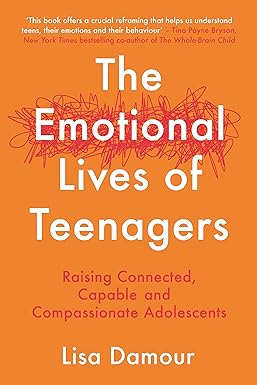If you’re straight and your teen isn’t, you may feel out of your depth. It’s hard enough raising any teen…but if your kid is gay, trans, queer, or a nonbinary teen, their experience may be very different from what you went through.
How do you “get it”? How can you keep your connection strong?
Good news: Most of what you need for a good relationship with an LGBTQI teen is the same as what you need with any other kid: unconditional love and clear limits.
(No teen likes limits, of course, but they need them. Knowing we’re stable and clear gives adolescents the platform they need to start stretching their wings and preparing to fly off into the world.)
At the same time, some things are different when your kid has a gay, lesbian, bi-sexual orientation, or a nonconforming gender identity. Their world is a little more complicated—and their need for love and support from you is greater.
7 tips to help you develop and strengthen your relationship with your LGBTQI teen
If you are not sure where to start, or if you may have fumbled it from the beginning, here are seven simple ways you can forge a better relationship with your gay teen. The most important thing to remember is to just be there for them—unconditionally.
Related: How my queer, Christian daughter inspired me to be a better human
1. Use their language.
One of the most important ways to show support for LGBTQ youth is using the language and pronouns they prefer. They’ll probably tell you how they describe their orientation and identity; honor that choice and use it. If you’re not clear about why they identify as, say, “pansexual” rather than “bisexual,” ask to further your understanding.
Using the preferred language tends to be trickiest when someone is transgender, queer, intersex, or otherwise nonbinary. If you’ve been calling your child “he” for years and now it’s “she” or “they” or “ze,” that can take some getting used to. It’s reasonable for your kid to cut you some slack if you slip up sometimes, but it’s loving and respectful to do your darnedest to get it right most of the time.
2. Let them tell or not tell.
It may be tempting to tell the family or your friends when your teen comes out; you may even think you’re being helpful. Nope.
When and to whom to come out about their orientation, sexuality, or gender identity is up to your teenager. It’s their story to tell, not yours.
It’s fine, even a good idea to ask your child if they’d like your help sharing the news. Some kids do want parents to take a role, maybe with specific people (Grandma? Super-conservative Uncle Tony?). They might want to consult you for guidance about how and when to share the news with family or the wider community. But the final decision is theirs.
3. Ask about bullying and discrimination.
In some communities, LGBTQI kids are easily accepted. In others, not so much. Sadly, teasing and bullying still happen. Ask your child about their experience and how they’ve handled it.
If they’ve been teased or bullied, of course be sympathetic—but don’t assume you should jump in to try and fix things. As upsetting as it is to know your child is being mistreated, sometimes parents getting involved only escalates the situation. Ask your child if they’d like you to help, either by talking to the school counselor and administration, or by strategizing with them about ways to respond to bullies.
5. Learn about any medical issues as you protect their physical and mental health.
If your child is gay, lesbian, bi, or otherwise non-heterosexual, the only medical concern you’re likely to need to address is STI protection, same as you would with any other kid. (And if they never have penis-in-vagina sex, you’re actually spared worry about unplanned pregnancy.)
But if your child is intersex, transgender, or otherwise gender nonconforming, some medical research may be in order. Science is evolving on this; experts in the field are assessing how best to use transition options including puberty blockers, hormones, and surgery. Talk to healthcare professionals about the various resources available—always putting your child’s well-being above all else.
The younger your child is, the more involved you’ll have to be. As long as they’re covered by your health plan, you’ll have some role with medical questions.
Related: More Than 30 Positive Affirmations For Your Teen To Help Their Confidence and Mental Health
6. Consider advocating on LGBTQI issues.
Some parents find it helpful to get involved as an ally in the LGBTQ community, maybe by joining a group like PFLAG (Parents and Friends of Lesbians and Gays). That gives you some support and a place to ask questions, and your involvement will make your teen feel loved and supported.
You might even be inspired to get involved in advocacy. Before you start working for change in any public way, just make sure your teen is okay with it. Most LGBTQI young people are thrilled when parents lobby for fairer laws and more inclusiveness—provided they’re ready for the exposure they’ll get indirectly.
7. Stay curious about their love life.
Some gay young adults have told me that after they came out, their love life sort of disappeared from family conversations. Their parents might have accepted them as gay…but they never asked about who they were dating and what those relationships were like.
LGBTQI young people need the same kinds of conversations as any other teens, just as their behaviors are often the same as straight kids. You don’t want to be intrusive about their love life, but definitely ask about their relationships. Just as with any teen, you want to get to know your kid’s date(s), talk about healthy relationships, ask occasionally what they like and don’t like about their relationship, and ask if they’re in love.
Watching your LGBTQI teen grow into their true, authentic self
Being LGBTQI is a life-long thing; your teen’s orientation or gender identity may affect their lives in different ways at different stages, to a greater or lesser degree. Stay curious. Just as you’ll watch your child’s hobbies, academic and professional interests, and friendships change over the years, notice and talk about what being LGBTQI means to them, how it impacts their daily life, etc. It’s all about watching them become the fascinating adults they’re going to be.
If you’re looking for additional resources on raising teenagers, we recommend The Emotional Lives of Teenagers by Lisa Damour.

Parenting Teens and Tweens is challenging, so here are more posts that might help:
Dear Teen: Sometimes You Don’t Find Your People in High School
50+ Awesome and Inspirational Quotes for Teenagers
It’s Not “Just Pot” — Why We Need to Be Concerned About Today’s Marijuana
10 Common Problems Middle School Girls Face (And How Parents Can Help)
*This post may contain affiliate links where we earn a small commission for purchases made from our site.








Leave a Comment